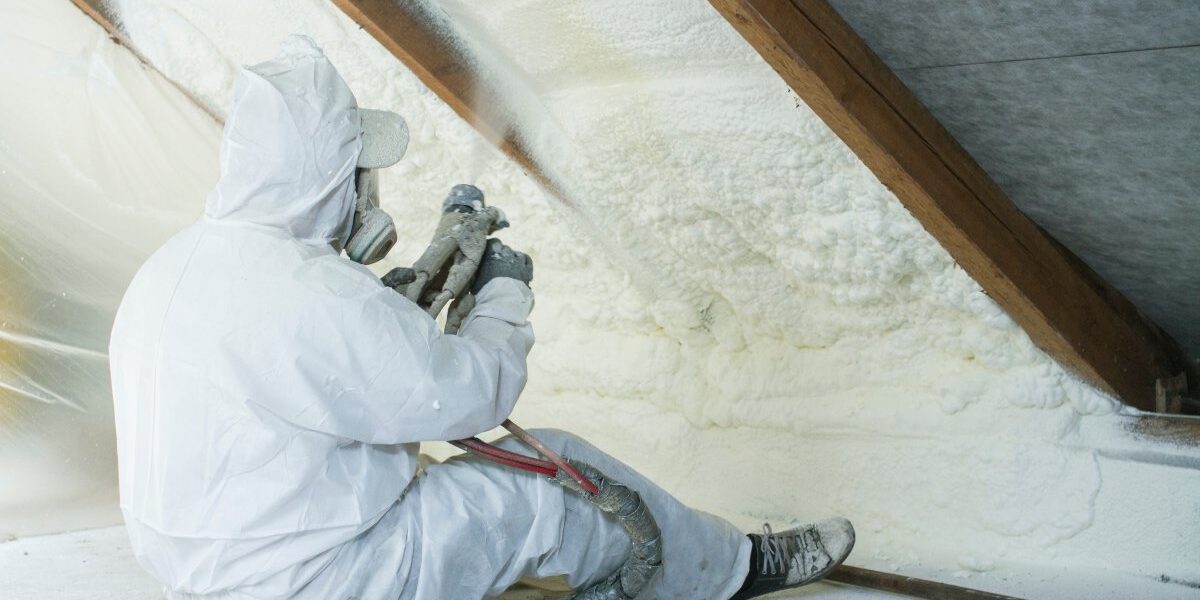Polyurethanes are a versatile category of polymers widely utilized in the construction sector. Thanks to their adaptability and performance characteristics, these materials contribute to structures’ efficiency, durability, and resilience. From insulation and sealants to coatings and adhesives, there are multiple applications of polyurethanes in construction.
1. Insulation
One of the primary applications of polyurethanes in construction is insulation. Rigid polyurethane foam serves as an effective thermal barrier, offering excellent insulating properties with minimal material use. It helps maintain consistent interior temperatures, reducing energy consumption in residential and commercial buildings. Its lightweight yet durable composition also makes it easy to install without adding unnecessary weight to structures.
Spray polyurethane foam (SPF) is another common type of insulation. Besides thermal performance, SPF provides moisture resistance that can enhance a building’s structural integrity by mitigating mold and water damage.
2. Advanced Adhesives
Polyurethane-based adhesives’ strength and flexibility make them ideal for numerous bonding applications in construction. Contractors commonly employ these adhesives when sealing joints, installing flooring, and assembling prefabricated building components. Their ability to adhere to diverse substrates such as concrete, wood, metal, and glass ensures reliable, long-lasting connections.
You can make better use of polyurethanes by having tailored formulations developed to address your specific application requirements through chemical toll manufacturing. Achieve this by forming a partnership with a custom chemical producer such as Capital Resin Corporation.
We’ll expertly create custom adhesives that can meet your unique performance criteria for enhanced tensile strength, improved thermal resistance, or compatibility with challenging substrates. We can incorporate specialized additives and precise chemical ratios into adhesive formulations. This ensures optimal bonding performance in demanding conditions, such as environments subjected to heavy loads, extreme temperatures, or high humidity.
3. Protective Coatings
Professionals often use polyurethanes in construction to coat surfaces made of wood, concrete, and steel. These coatings protect construction materials from external wear and tear caused by corrosion, UV damage, and chemical exposure. For instance, structural steel used in bridges or high-rise buildings can benefit from polyurethane coatings that prevent rust.
The high abrasion resistance of polyurethane coatings makes them a popular choice when constructing high-traffic areas such as commercial facilities and parking garages. They also possess the added benefits of being low-maintenance and resistant to harsh cleaning agents.
4. Sealants for Weatherproofing
Polyurethane sealants are indispensable in ensuring weatherproof construction. These sealants’ elastic properties accommodate movement from thermal expansion and contraction, making them perfect for sealing joints and cracks. Common uses include facades, roofs, and window installations to block air, water, and noise infiltration.
5. Sustainable Construction
Modern construction practices increasingly prioritize sustainability, and polyurethanes support this effort. High-performance insulation reduces energy consumption, while long-lasting coatings and adhesives minimize maintenance needs and material waste.
Merging technologies continue to expand potential polyurethanes applications in construction. Innovations in bio-based polyurethanes and recycling processes, for instance, pave the way for more environmentally friendly solutions without compromising material performance.







